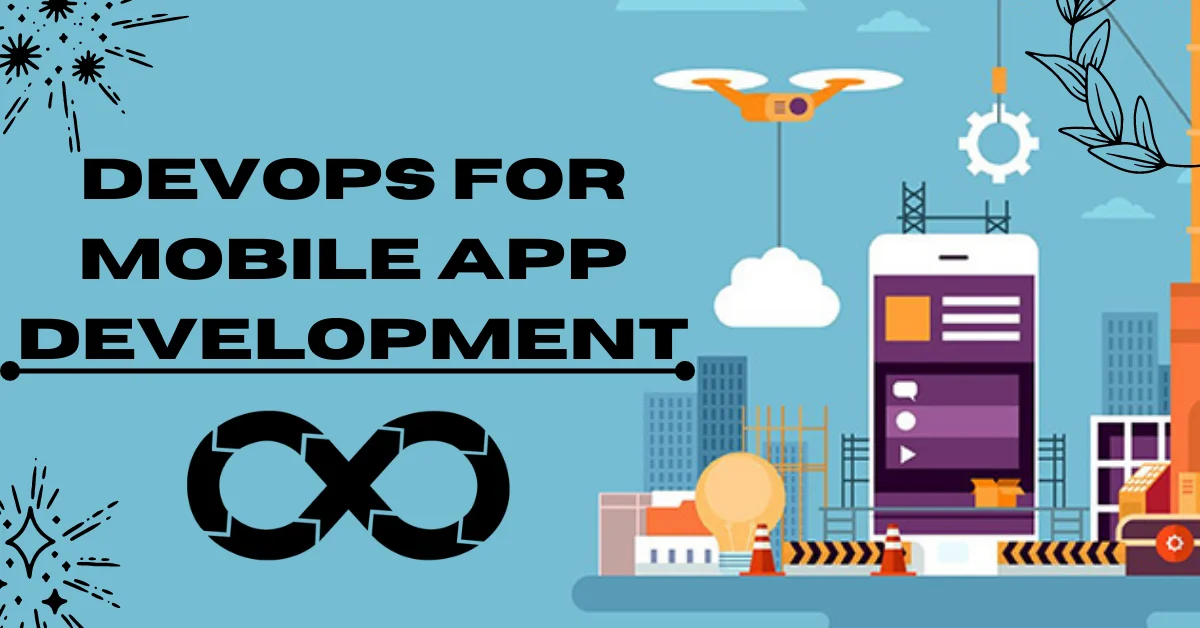Enroll Now and Get Upto 30% Off
* Your personal details are for internal use only and will remain confidential.

Last updated 08/06/2021

DevOps is a modern software development method that focuses mainly on the effective collaboration between software developers, project managers, and operations staff, while also aligning with business goals at the same time.
DevOps came into being when developers and operations staff came together to more effectively overcome the challenges associated with continuous software delivery.
A mobile-first approach is imperative for successful businesses given the huge proliferation of mobile devices, yet many companies are still behind in adopting the DevOps practices for mobile app development.
Today, the extent of Smartphone users has exceeded 3 billion, and it is expected to grow by several hundred million within the subsequent years, as per Statista.
DevOps for mobile app development is a current tactic that allows seamless application delivery from the stage of inception to production. DevOps ceases the development-operation barrier, and it is a retreat from the conventional waterfall methodology to software development.
The exclusive technique emphasizes real-time collaboration amongst the stakeholders, comprising project managers, mobile app developers, and operation staff, for creating a digital product.
Fostering a collaborative culture amongst team members is the prime notion behind developing DevOps for mobile app development. By implementing DevOps, it has become easy to align business goals, delivering higher value to clients.
According to a market study, it is confirmed that organizations that have implemented DevOps have benefitted a 63% improvement in software deployment quality, and about 63% released new software frequently.
Successful adoption of DevOps for mobile app development entails implementing three fundamental steps as discussed below:
Continuous planning refers to the collaboration of the entire mobile app project team, including developers, operations staff, project manager, and other relevant stakeholders, to finalize the scope of work for mobile application development.
Continuous integration ensures that the code developed by one developer seamlessly integrates with the code delivered by another developer. It demands frequent builds, which must be integrated with the last developed code.
Typically, mobile app testing is conducted manually on simulators and emulators instead of the real environment. But organizations must understand that a mobile app can perform well in a test environment and may fail in a real environment.
Therefore, it is crucial to adopt automated testing to improve the process of handling regular builds, bug identification, and error rectification. Moreover, ensure continuous performance monitoring by implementing third-party SDKs to determine the cause of failure.
In continuous delivery, the code is deployed to the production environment by submitting each fix or change to the production-like environment.
Continuous deployment automatically deploys each change, that has been approved by continuous testing, to the production environment.
User experience is the most important factor. Mobile DevOps enables instant reporting and feedback, regression testing, and a transparent development process, which results in faster troubleshooting of the errors, faster fixes, and optimized user experience.
DevOps increases collaboration among the different departments and teams and simplifies the process of information sharing, which results in faster code releases.
DevOps ensures a transparent process, increases communication among various teams, and helps in building better products. DevOps removes several bottlenecks, including
While the basic principles of adopting DevOps for web apps and mobile apps are the same, there are certain challenges for adopting DevOps in mobile app development.
Mobile applications have multiple target environments. Most mobile apps target multiple devices, OS versions, hardware specifications, and more.
Generally, a mobile app cannot be deployed directly to a mobile device. It has to go through the App Store for iOS and the Google Play Store for Android. The app then goes through a submission and review process.
Traditional deployments operate on a push model where a new version of the application can be pushed, whether it is a web app or a cloud-based app. However, the process of updating a mobile app is a pull process, as it is up to the user to choose whether or not he/she wants to update the app.
Nothing is worse than a 1-star rating for your mobile app. Unsatisfied customers can publically harm your brand through the medium of the App Store or Play Store. It becomes extremely important for you to do rigorous testing using functional, usability, and performance testing techniques.
In our perception, there is no such thing as a separate DevOps for mobile application development. DevOps is a general approach that works for all components as well as different kinds of application development.
While there are certain challenges involved in adopting DevOps for mobile apps, there are also measurable benefits that makes the entire journey worthwhile.
Topic Related Post
NovelVista Learning Solutions is a professionally managed training organization with specialization in certification courses. The core management team consists of highly qualified professionals with vast industry experience. NovelVista is an Accredited Training Organization (ATO) to conduct all levels of ITIL Courses. We also conduct training on DevOps, AWS Solution Architect associate, Prince2, MSP, CSM, Cloud Computing, Apache Hadoop, Six Sigma, ISO 20000/27000 & Agile Methodologies.
* Your personal details are for internal use only and will remain confidential.